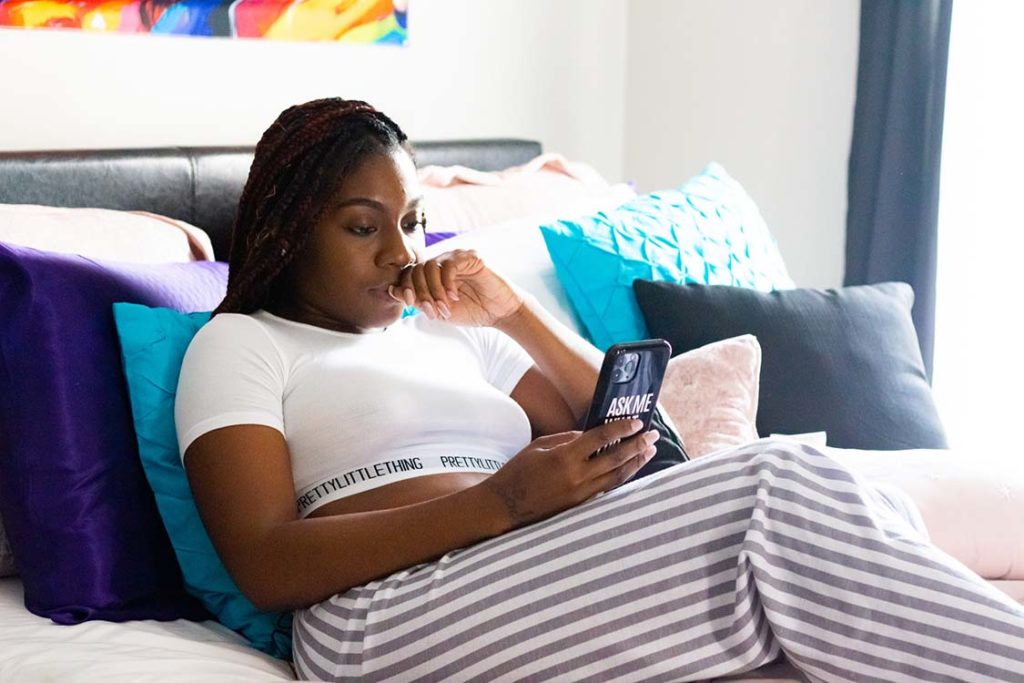Lockdown pulled the rug from several of my friendships, but maybe this was a good thing

Ding ding ding! It’s the sound of a half-arsed conversation with an old friend. The kind where we leave the message for a few days, suddenly remember at three in the morning, make a mental note to reply the next day and forget. When you do remember to reply it’s three messages worth in a conspicuous attempt to make up for forgetting to reply for a week. It’s nothing particularly interesting, just catching up on the last six months of friendship you’ve gone without speaking. “How’s the family?” “And the new puppy?” “Yes I’m good thank you, just living everyday like Groundhog day.”
If I think about my phone now, there are probably around five messages at least over a week old that I’ve forgotten to reply to. It’s not that I don’t want to talk, the pandemic has just stripped me of all sense of urgency. Messages people have sent me float in my inbox for days, weeks, sometimes even months, circulating in it’s cyberspace before I can psych myself up to answering.
All zoomed out
The pandemic may have diminished any desire to respond to friends but it has truly vanquished any novelty surrounding group video calls. Originally, Zoom was a bit of an eye opener. I had video calls with friends I hadn’t seen in months due to living in different cities. I left the calls feeling refreshed and giddy, which wasn’t only down to the bottle of wine which had been consumed during. I was merry and warm from reconnecting with old friends. When the calls became weekly, they quickly spiralled into appointments in the calendar I was finding excuses to avoid.
It doesn’t matter whether you call it a virtual happy hour, it’s a meeting, because mostly we are used to using these tools for work
Gianpiero Petriglieri
Gianpiero Petriglieri is an associate professor at Insead who explores sustainable learning and development in the workplace. He tells the BBC that ‘zoom fatigue’ has something to do with the fact our computer screens are our only outlet for working and socialising right now. He says, “It doesn’t matter whether you call it a virtual happy hour, it’s a meeting, because mostly we are used to using these tools for work.”

The only thing worse than a painful zoom call? A zoom quiz. Stop the quizzes, I want to get off. They were only vaguely fun to start with, and now they’re just downright boring. If you are one of those people who enjoy competitively naming Britain’s 1500 river systems with your friends then crack on, don’t let me disparage your love of trivia. I’m just jealous. But as soon as spending time with friends began to feel like a chore, I logged off.
Rule of six
So then when things began opening up again, I thought, thank goodness. No more tides of Zoom calls which I was running out of excuses to avoid. Except, with the easing came the rule of six. You could sit in someone’s garden, as long as there were only six of you. What did this mean for big friendship groups? People started to be left out. Friendship groups were filed down to the preferred six and the outsiders were left FOMO-ing through the looking glass of Instagram stories.

I distinctly remember the slap in the face moment when it clicked that my big friendship group had left me out. The first sign was a garden party I glared at through each of their Facebook pages, the next on Instagram when I observed them surprising another friend individually at carefully calculated times throughout the day to abide with Covid rules. The last was when I actually met up with a few of them, and they accidentally let slip that they had a new group chat.
Friendship groups were filed down to the preferred six and the outsiders were left FOMO-ing
That kick in the teeth was a turning point in how I examined my wider friendships. I re-evaluated who I really wanted to stay in touch with and who not so much. Friendship is reciprocal. The irony of this year is that we all feel isolated in perhaps the most shared experience we will ever undergo. The flipside of this is when we all needed each other the most, we felt neglected.
Perhaps it was my own abject crabbiness at connecting over technology which lost me a few friends this year. But it has led me down a path which I plan on continuing – more full-bodied conversations with less people.